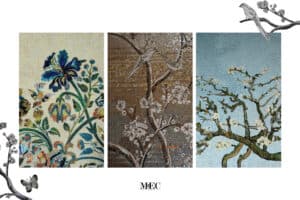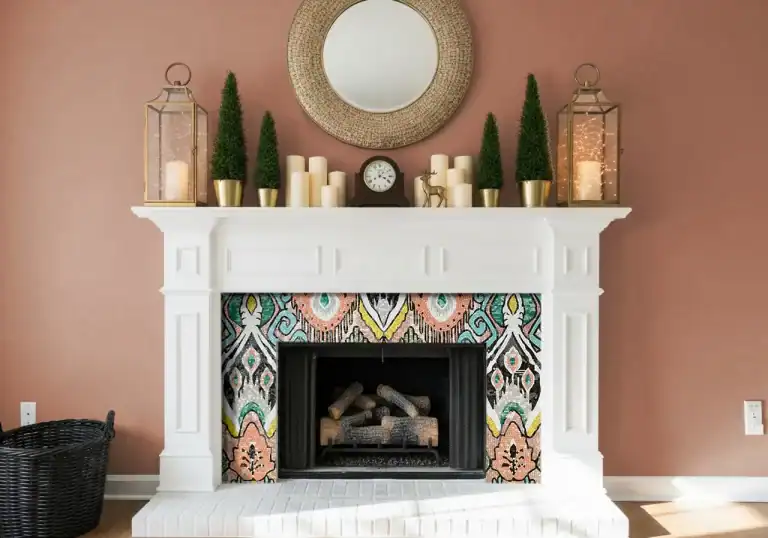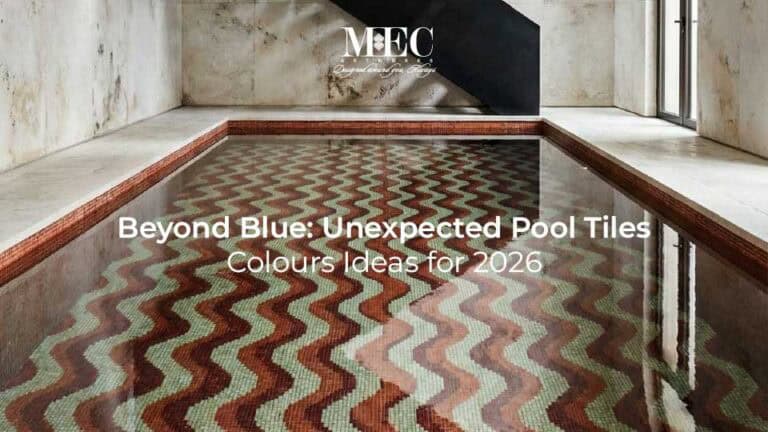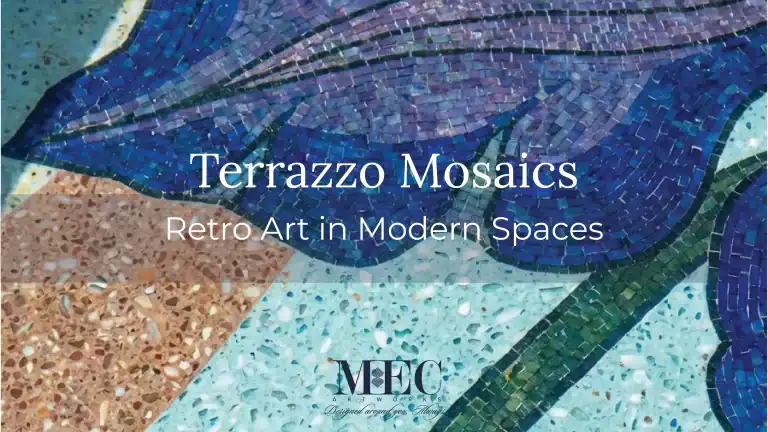There’s something magical about mosaic tile art—it tells a story one piece at a time. As we head into 2025, this ancient art form is being reimagined in exciting new ways, blending tradition with innovation. Whether you’re refreshing a bathroom wall or designing a bold outdoor feature wall, mosaic trends this year are all about color, character, and creativity.
In this blog, we will explore the top mosaic tile art trends shaping interiors and exteriors in 2025—from popular materials and color palettes to standout applications like pool mosaics and Chinoiserie-inspired patterns. Whether you’re an interior designer, a DIY enthusiast, or simply looking for fresh inspiration, this guide will help you discover how mosaic art can transform your space with style and intention.
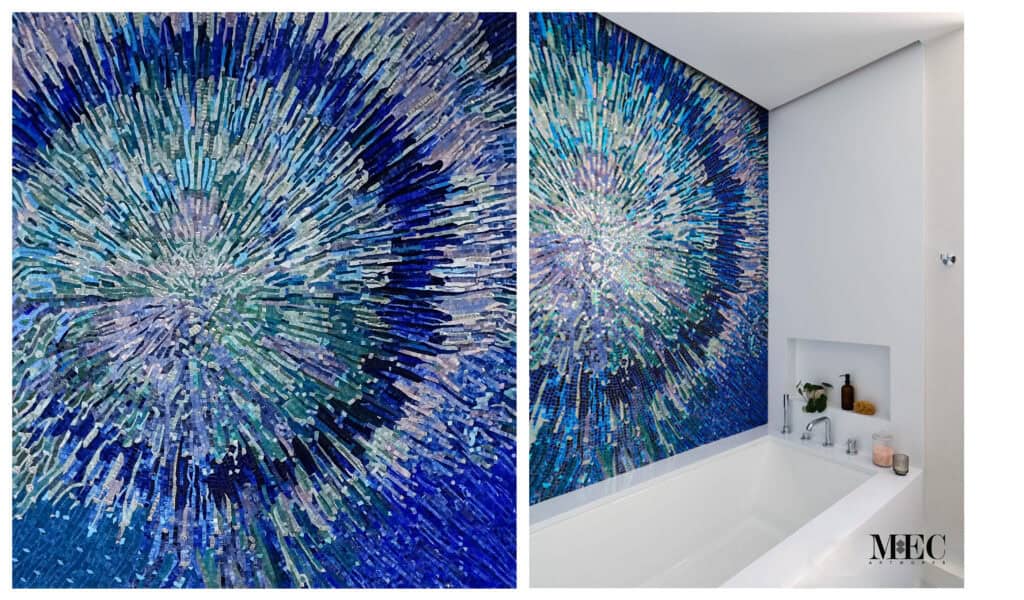
Table of Contents
- Top Mosaic Tile Art Trends 2025
- Top Mosaic Masterpieces for Pools, Floors, and Walls
- Chinoiserie Patterns in Mosaic Tile Art
- Global Influences in Mosaic Tile Art
- Modern Mosaic Art: Where Craft Meets Innovation
- Beyond Aesthetic: The Psychology of Color and Pattern
- Pantone Color of the Year 2025 and Mosaic Design
- Artisanal Techniques Still Matter
- The Mosaic Renaissance in Pools and Outdoor Spaces
- Think Extraordinary: MEC Artworks’ Unique Client Process
- The Future of Mosaic Tile Art
- Let Mosaics Tell Your Story
- FAQs
Top Mosaic Tile Art Trends 2025
Mosaic tile art continues to captivate designers, artists, and homeowners alike with its intricate beauty and endless versatility. As we move through 2025, the world of mosaic tile art is being shaped by a fusion of traditional craftsmanship and cutting-edge innovation. From sustainability to spatial storytelling, this year’s trends are as much about purpose as they are about aesthetics.
1. Geometric Revival: Symmetry Meets Modernity
Geometric designs remain a cornerstone of contemporary mosaic tile art. In 2025, these patterns have evolved into more refined and complex forms, drawing inspiration from both ancient tessellations and modern minimalism. Hexagons, chevrons, and interlocking triangles are being used to create striking visual narratives that elevate both walls and floors.
2. Nature-Inspired Elegance
Designers are increasingly turning to nature for inspiration, and mosaic tile art is no exception. Expect to see an abundance of botanical motifs, oceanic palettes, and organic shapes that bring a calming, biophilic feel to interiors. Murals that depict forests, flowers, birds, and underwater scenes transform simple surfaces into tranquil escapes.

3. Bold Color Palettes & Luxe Metallics
2025 is all about fearless color. From deep emerald greens and cobalt blues to burnt oranges and mustard yellows, mosaics are becoming bolder and more expressive. Metallic finishes—such as copper, gold, and brushed bronze—are also trending, adding a luxurious edge and creating shimmering, light-reflective surfaces.
4. Tactile 3D Mosaics: Sculpting Surfaces
One of the most exciting developments in mosaic tile art is the rise of 3D mosaic tiles. By incorporating various depths, angles, and sculpted shapes, artists are crafting walls that don’t just display art—they become art. These textural mosaics add dynamic interaction with light and shadow, making them ideal for feature walls in modern commercial or residential settings.
5. Sustainable & Ethical Materials
Eco-consciousness is influencing every aspect of design, and mosaic art is embracing this shift. In 2025, more artists and manufacturers are opting for recycled glass, reclaimed ceramics, and ethically sourced natural stones. Some are even exploring biodegradable adhesives and grout alternatives.
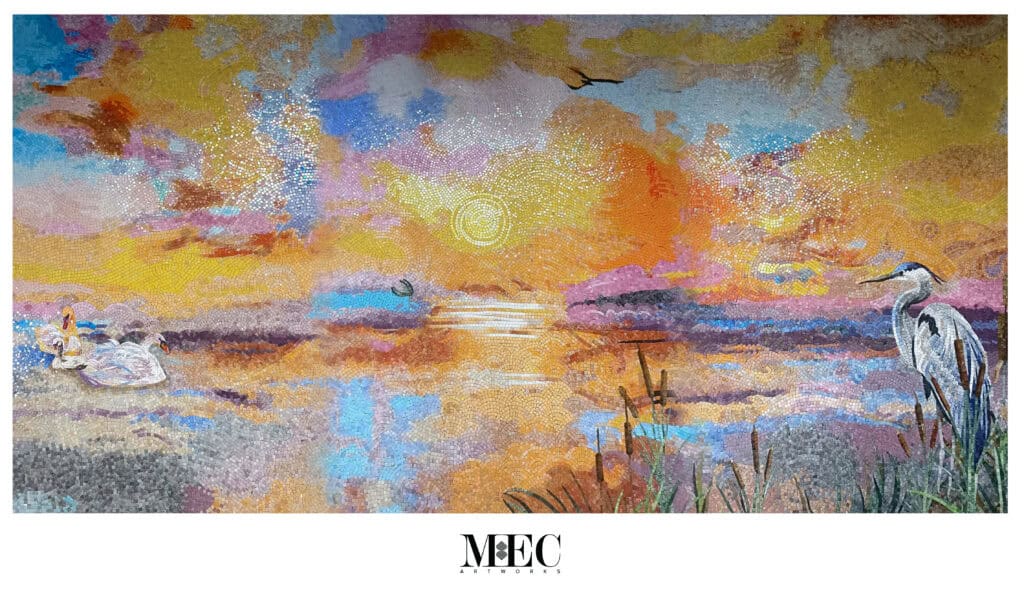
6. Digital Meets Handmade: Tech-Enhanced Mosaics
Technology is making waves in the mosaic world, especially through AI-generated designs, laser-cut precision, and interactive mosaics with embedded LED lighting. Digital tools help artists visualize and prototype complex pieces faster, while retaining the tactile, handmade essence of traditional mosaic art.
7. Micro-Mosaics: Small Tiles, Big Impact
Miniaturization is having a moment. Micro-mosaics, using extremely small tiles (or tesserae), are being used to create incredibly detailed portraits and abstract compositions. These intricate works are ideal for art collectors or accent pieces in high-end interiors.
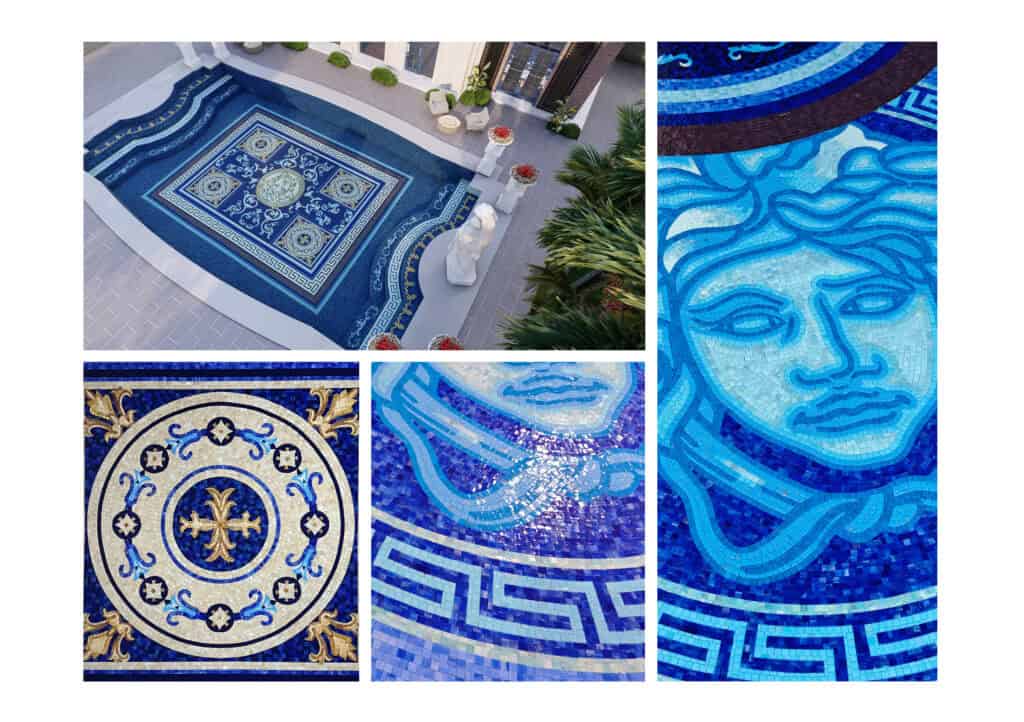
8. Fusion of Materials: Mixing Media for Impact
Mosaic art is no longer just about tile. Artists are now blending materials like wood, mirror, stone, metal, and even resin to add contrast and dimension. These hybrid mosaics push the boundaries of traditional formats, creating pieces that are as sculptural as they are pictorial.
Top Mosaic Masterpieces for Pools, Floors, and Walls
In the Islamic Golden Age, mosaic geometry reflected mathematical precision and spiritual contemplation. The Moorish Zellij tilework in Morocco and Andalusia became iconic for their non-representational but highly symbolic designs. In contrast, Western Europe during the Renaissance celebrated figurative mosaic scenes that captured biblical, mythological, and historical themes.
Each region left its imprint, contributing to the versatile and global language mosaic speaks today. Mosaic art has a rich history, with masterpieces adorning various surfaces. Here are some iconic examples:
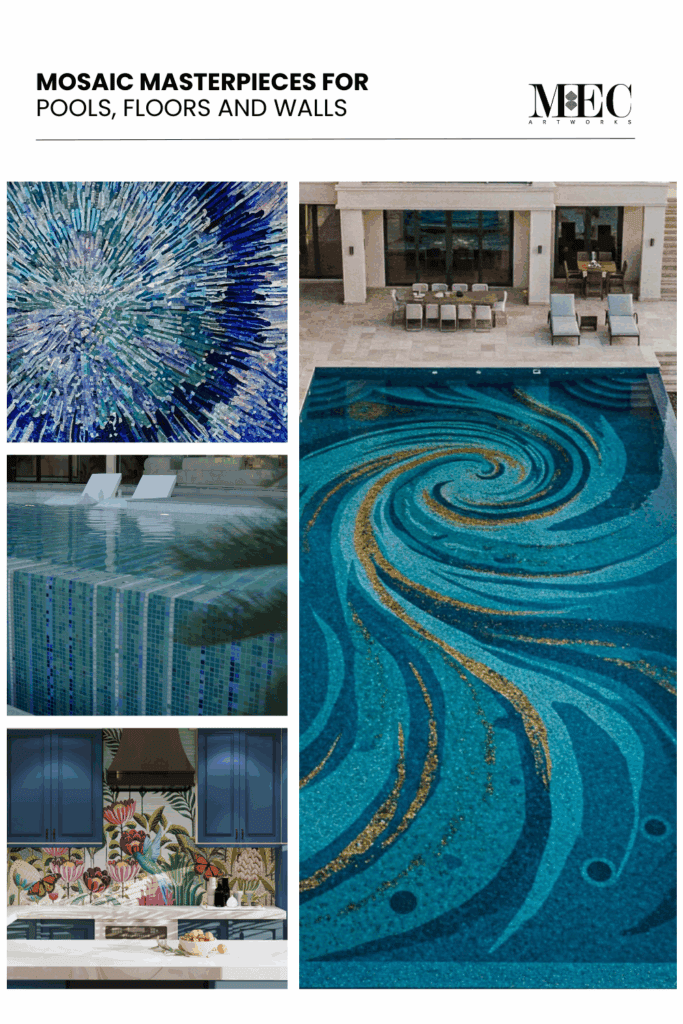
Monreale Cathedral Mosaics (Italy)
These Byzantine-style mosaics depict scenes from the Bible and are renowned for their intricate detail and vibrant colors. The cathedral’s interior is adorned with over 6,000 square meters of mosaics, illustrating biblical narratives and religious figures.
Mosaics of Delos (Greece)
Dating back to the Hellenistic period, these mosaics feature mythological and natural motifs, showcasing the artistic prowess of ancient civilizations. The mosaics are primarily found in residential buildings and public spaces, displaying intricate designs and storytelling.
Zellij Mosaics (Morocco)
Traditional Islamic mosaics known for their geometric patterns and vibrant colors, often used in pool designs to add a cultural touch. Zellij mosaics are crafted from individually chiseled tiles set into a plaster base, creating complex and colorful patterns.
Villa Romana del Casale Mosaics (Italy)
Famous for the “Bikini Girls” mosaic, these artworks depict daily life and are celebrated for their vivid colors and dynamic compositions. The villa’s mosaics cover over 3,500 square meters, illustrating scenes of hunting, mythology, and daily activities.
Pompeii Mosaics (Italy)
These ancient mosaics offer insights into Roman life, featuring scenes of mythology, nature, and daily activities. The mosaics are found in various Pompeian villas and public buildings, showcasing the artistic and cultural richness of the time.
Alhambra Mosaics (Spain)
Known for their intricate Islamic designs, these mosaics showcase the fusion of art and architecture in historical settings. The Alhambra’s mosaics feature interlacing geometric patterns and arabesques, reflecting the Islamic emphasis on aniconism.
Villa Adriana Mosaics (Italy)
These mosaics depict mythological scenes and are celebrated for their artistic detail and historical significance. The mosaics are found in the villa’s nymphaeum and other areas, illustrating themes of nature and mythology.
Hagia Sophia Mosaics (Turkey)
These Byzantine mosaics blend Christian iconography with Islamic art, reflecting the building’s diverse history. The mosaics depict religious figures and scenes, showcasing the artistic achievements of the Byzantine Empire.
Sainte-Chapelle Mosaics (France)
Renowned for their stained glass mosaics, depicting biblical stories with vibrant colors and intricate details. The chapel’s mosaics are complemented by its famous stained glass windows, creating a harmonious artistic environment.
Saint Mark’s Basilica Mosaics (Italy)
These mosaics are celebrated for their golden backgrounds and religious themes, showcasing Byzantine artistry. The basilica’s mosaics cover vast areas, illustrating scenes from the Bible and the lives of saints.
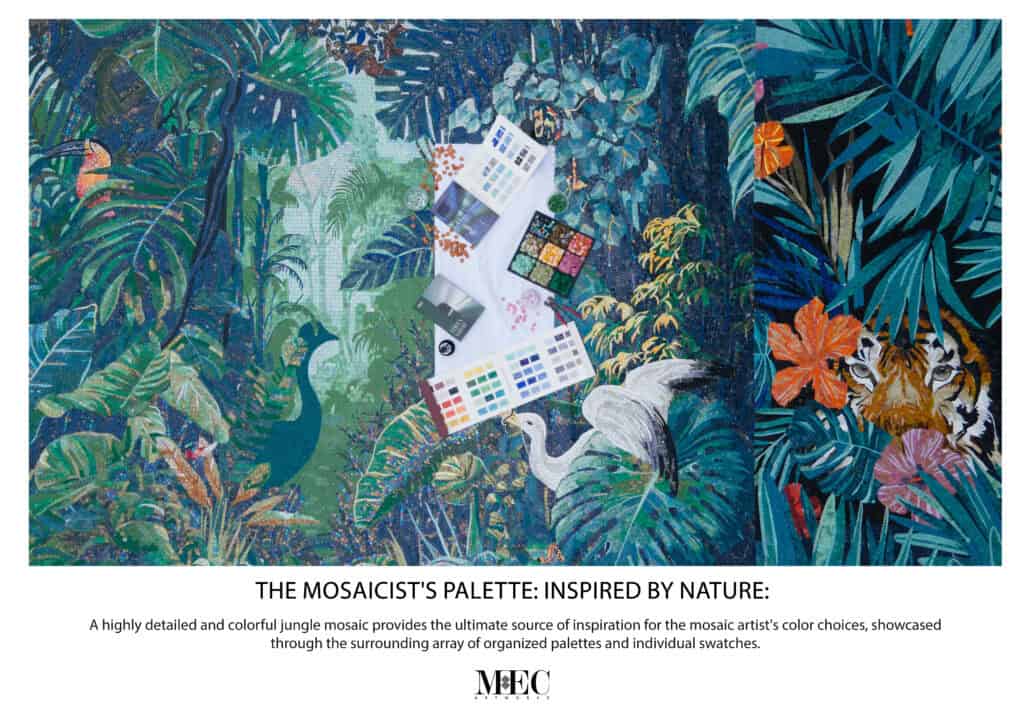
Chinoiserie Patterns in Mosaic Tile Art
Chinoiserie is a Western art style inspired by East Asian design, particularly Chinese and Japanese motifs. In mosaic tile art, it brings an air of romantic elegance and timeless charm, making it a popular choice for artistic and decorative surfaces.
This style is characterized by a blend of fantasy and nature, often depicted in fine detail. When recreated in mosaics, the result is a captivating visual story crafted from small, colorful tiles.
Common motifs in Chinoiserie mosaic designs include:
- Delicate cherry blossoms and peonies
- Graceful cranes, birds of paradise, and koi fish
- Bamboo groves and gnarled pine trees
- Pagodas, bridges, and garden scenes
- Mythical creatures like dragons and phoenixes
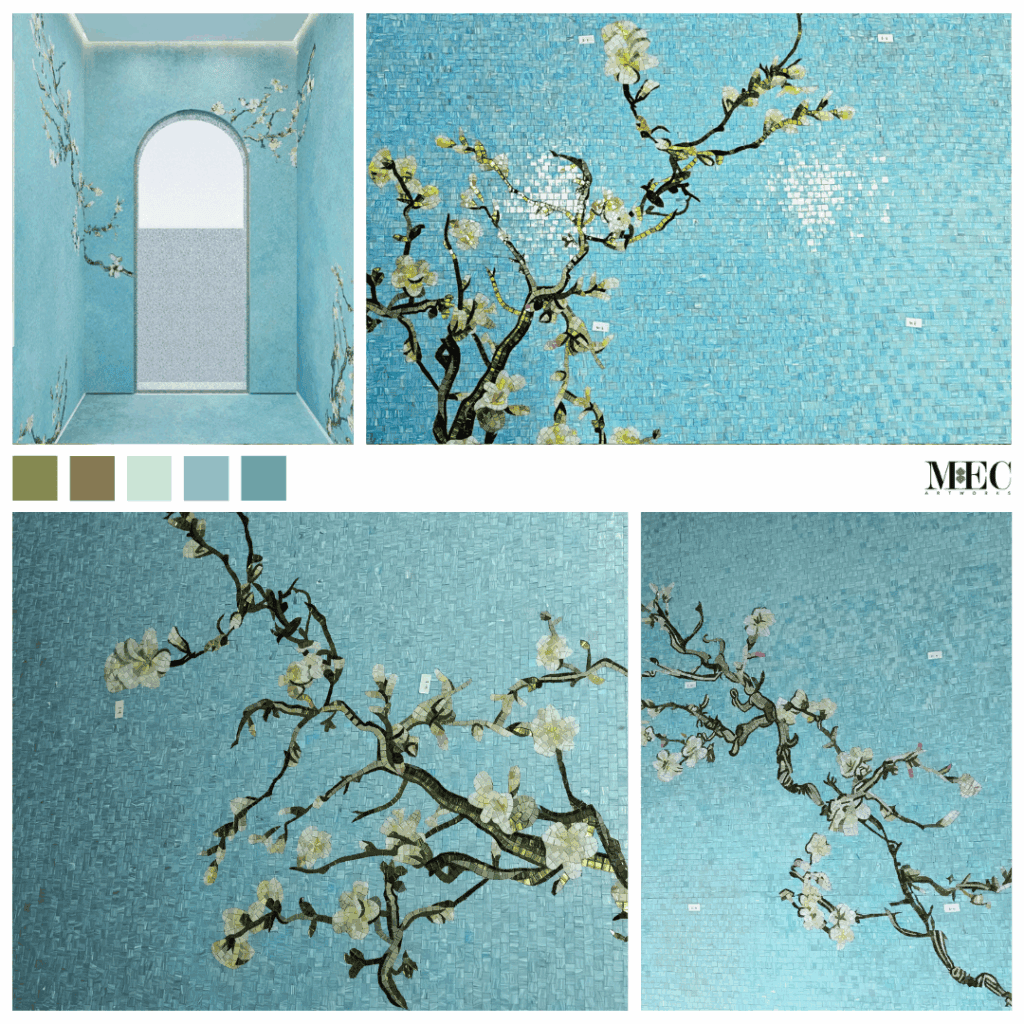
These intricate elements are typically arranged in fluid, symmetrical compositions that reflect harmony and balance—core principles in East Asian aesthetics.
Key features of Chinoiserie in Mosaic Art:
- Color palette: Often soft and elegant, with hues like celadon green, porcelain blue, blush pink, and antique gold
- Tile shapes: Artists may use custom-cut tesserae to mimic brushstroke-like lines and flowing details
- Application areas: Ideal for statement walls, fireplace surrounds, bathrooms, or even outdoor courtyards. Browse bathroom tile ideas to get your custom design!
In modern interiors, Chinoiserie mosaic designs serve as a bridge between old-world artistry and contemporary design. They’re not just decorative—they’re timeless narratives captured in stone and glass.
Global Influences in Mosaic Tile Art
Mosaic tile art reflects diverse cultural influences:
- Persian Mosaics: Characterized by intricate and trendy geometric patterns that are a prime flooring trend, and vibrant colors, often found in mosques and palaces.
- Japanese Mosaics: Known for their minimalistic designs and use of porcelain tiles, reflecting the country’s aesthetic principles.
- Azulejos: Traditional Portuguese and Spanish tiles featuring blue and white patterns, commonly seen in historical architecture.
- Moroccan Zellij: Hand-cut ceramic tiles arranged in complex, interlocking patterns, showcasing the country’s rich artistic heritage.
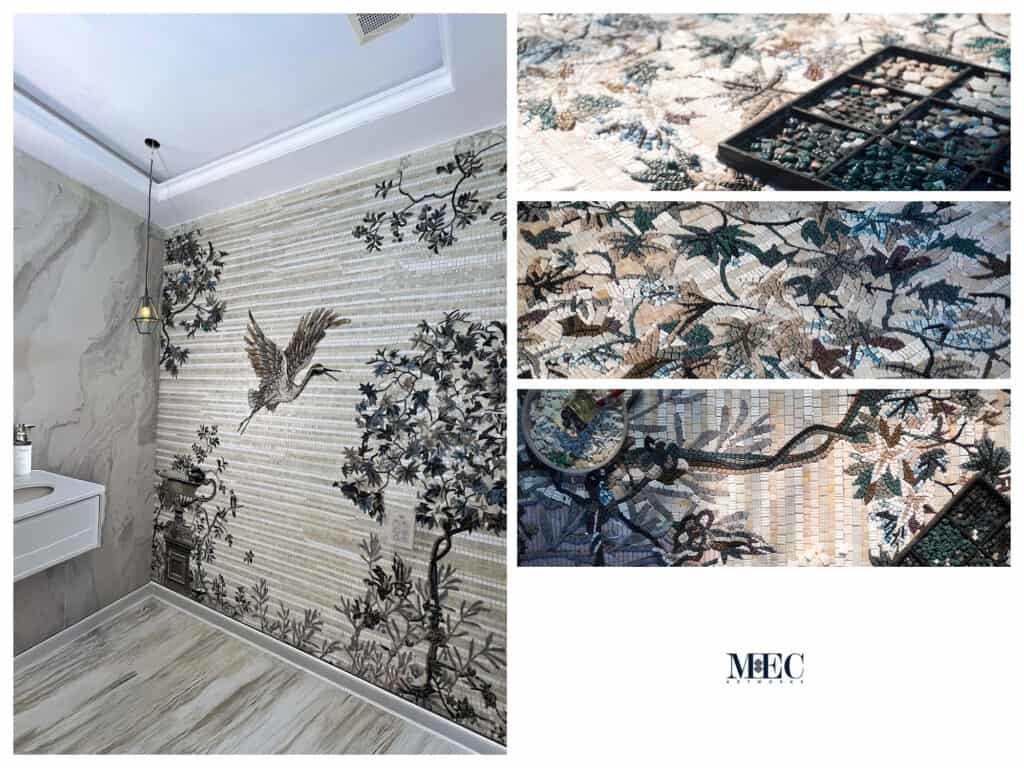
Innovative Applications of Mosaic Tile Art
Mosaic tile art is expanding beyond traditional uses, finding new and creative ways to enhance spaces and engage people.
- Public Art Installations: Large-scale mosaic murals are transforming city walls, fostering community connection and cultural expression.
- Furniture Design: Mosaics are being used in furniture pieces like tabletops and cabinet fronts, adding artistic flair to functional items.
- Interactive Art: Some installations allow viewers to rearrange tiles, making the artwork dynamic and participatory.
- Unusual Spaces: Mosaics are now found in unexpected places like entryways and bathrooms, especially shower floors, adding beauty to every corner of the home.
- Light-Reflective Mosaics: Tiles with reflective materials create dynamic effects by interacting with light, offering ever-changing visuals.
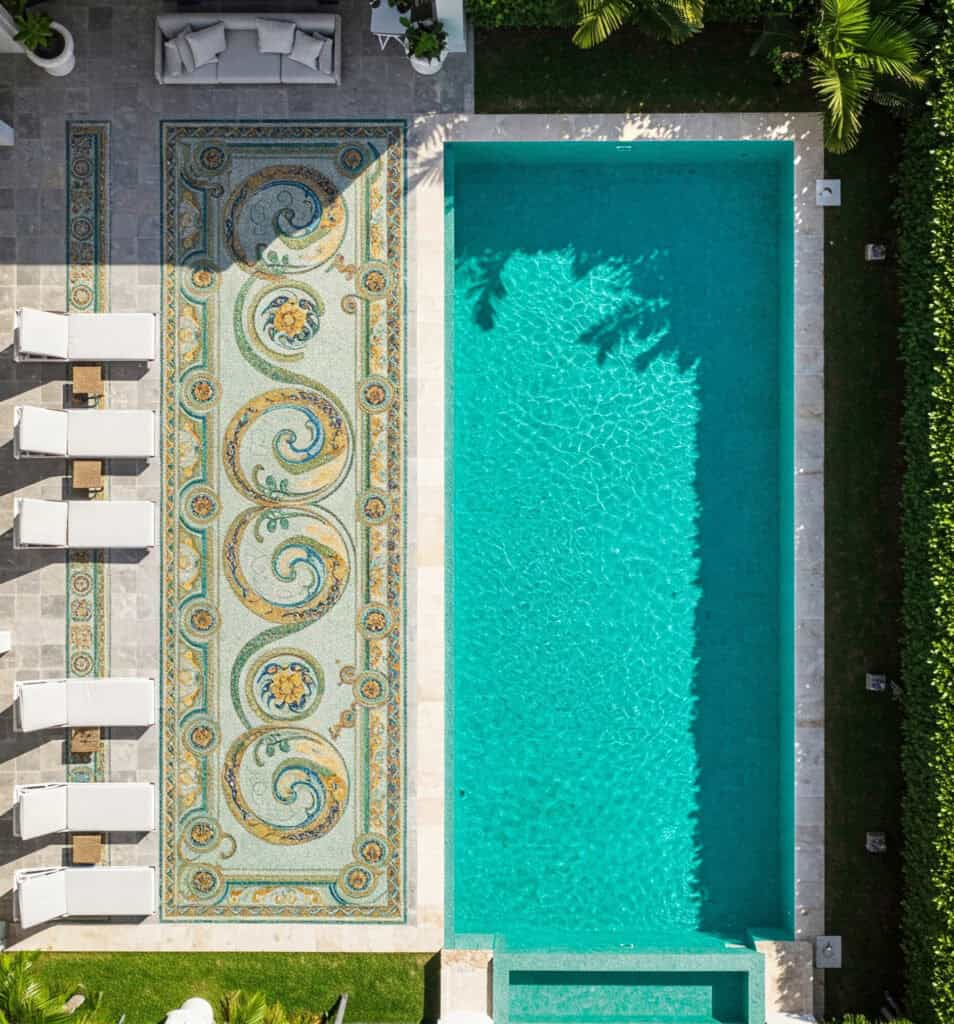
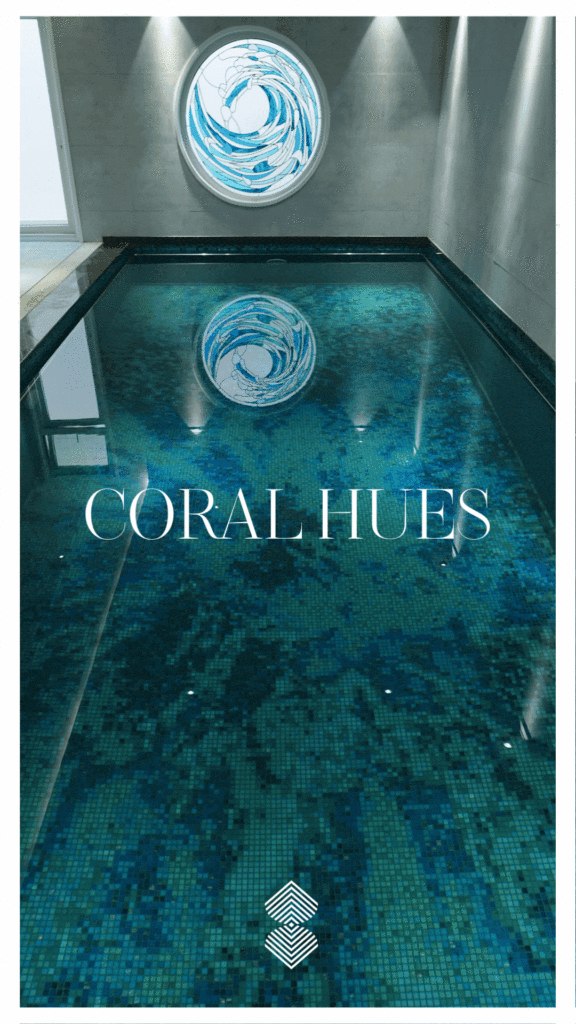
Pool Mosaics: Art Beneath the Surface
Pool mosaics are a stunning way to elevate the visual appeal of any swimming area, transforming a functional space into a vibrant work of art. Whether it’s a luxurious hotel pool or a cozy backyard oasis, mosaic designs add personality, color, and a sense of craftsmanship to the underwater world.
Unlike standard tiling, mosaic tiles allow for intricate patterns and fluid shapes that move with the contours of the pool. They’re made from materials like glass, porcelain, or ceramic, all of which are water-resistant and built to withstand long-term exposure to chlorine, sun, and moisture.
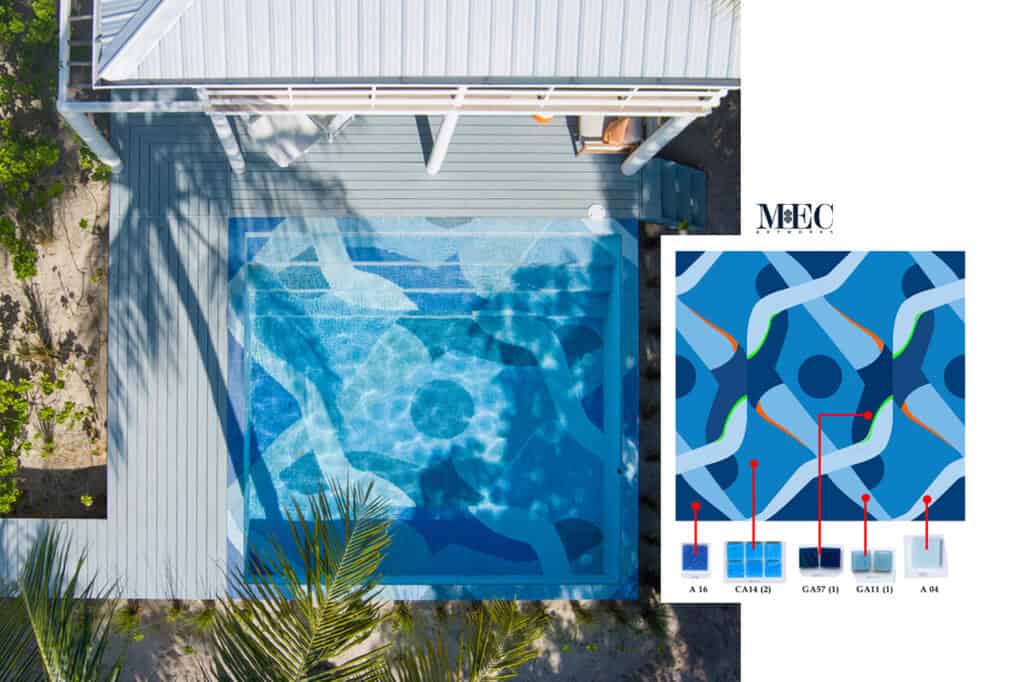
Popular Pool Mosaic Themes
Design choices for pool mosaics range from subtle to bold, allowing homeowners and designers to reflect personal style or create a specific ambiance.
- Marine life: Dolphins, turtles, fish, coral reefs, and other aquatic creatures
- Geometric patterns: Symmetrical or abstract designs that play with light and movement underwater
- Tropical elements: Palm trees, waves, seashells, and sun motifs
- Custom monograms or logos: For personalized home pools or branded hospitality spaces
- Mythological and fantasy scenes: Mermaids, Poseidon, or celestial elements for dramatic effect
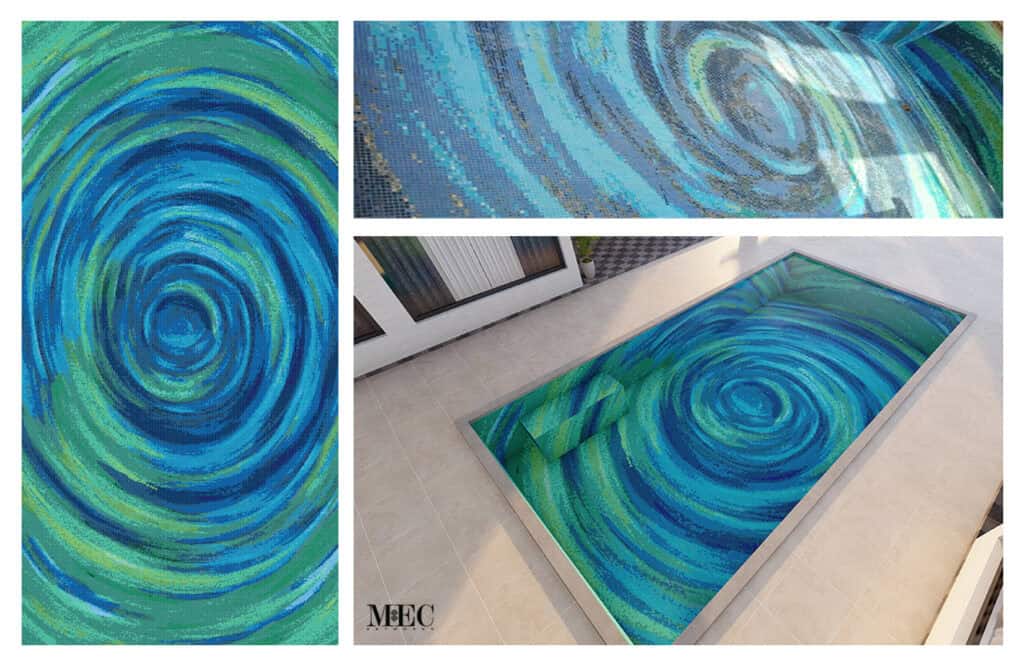
Modern Mosaic Art: Where Craft Meets Innovation
While ancient mosaic artists worked with chisels and rudimentary techniques, today’s creators are equipped with design software, laser-cutting tools, and eco-conscious materials. But the essence remains the same—meticulous craftsmanship combined with imaginative storytelling.
In contemporary settings, mosaics are not just decorative. They’re functional, durable, and increasingly sustainable. With digital design integration, designers can now map large-scale murals, pool bottoms, and feature walls to millimeter precision.
This hybrid of technology and tradition allows mosaic tile art to be customized for both modern and classical aesthetics. Designers, artists, and homeowners are rediscovering the versatility and soul of mosaic through these advancements.
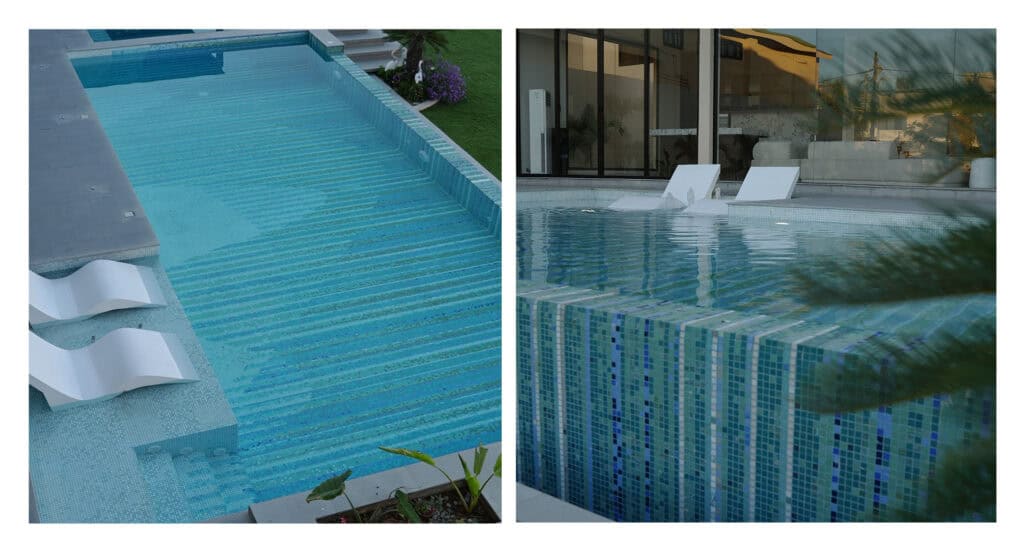
Beyond Aesthetic: The Psychology of Color and Pattern
Mosaic tile art appeals not just to the eye, but to the psyche. Research shows that certain patterns and colors can significantly influence emotional well-being. Repetitive motifs can offer a sense of calm, while bold contrasts can energize a space. This is particularly powerful in wellness-focused environments like spas and pools, where the best pool mosaics are not only beautiful but psychologically soothing.
For example, blue-toned mosaics in pools evoke cleanliness, calm, and serenity—qualities that enhance the swimming experience. Earthy tones, which are trending in 2025 with Pantone’s Color of the Year 2025 – Mocha Mousse, bring warmth and a sense of grounding. Mosaic designers today consult both color theory and client psychology to create truly immersive environments that do more than please the eye—they tell stories, inspire moods, and elevate daily rituals.
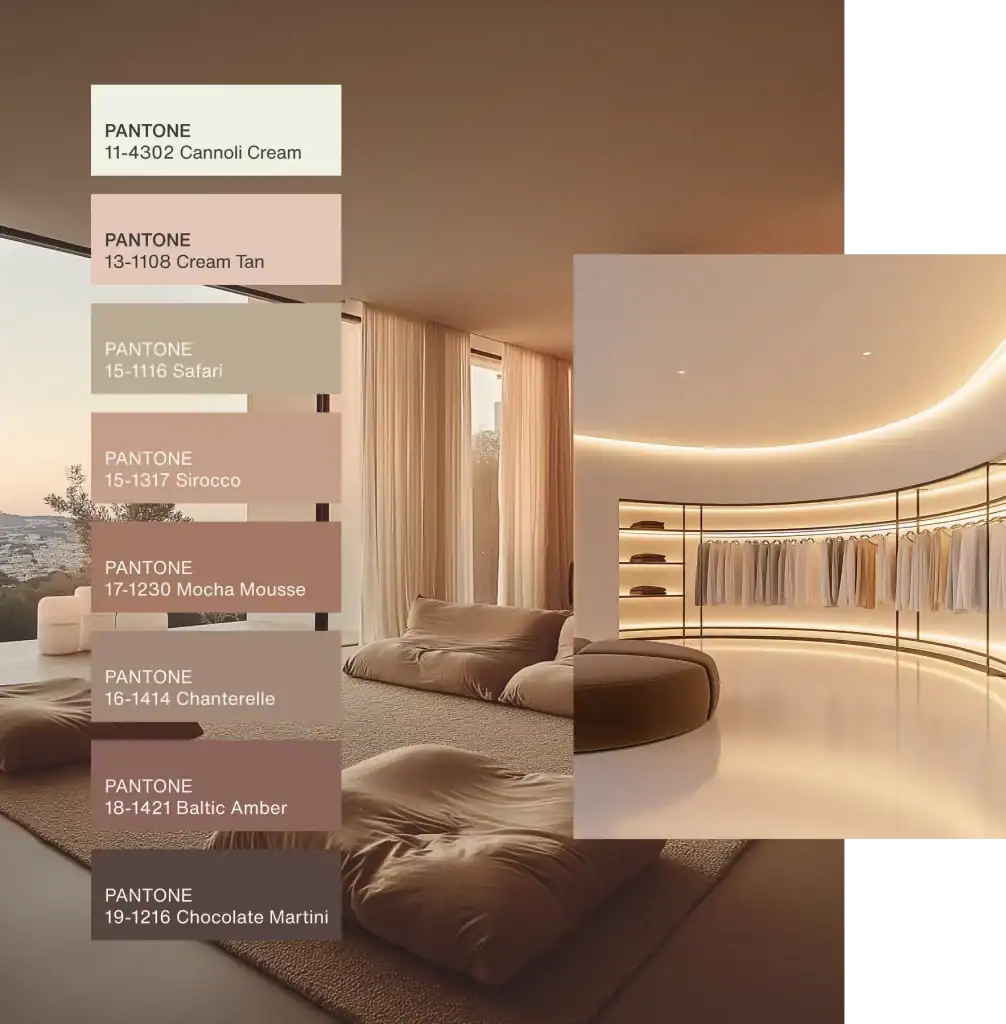
Pantone Color of the Year 2025 and Mosaic Design
Every year, Pantone reveals a color that shapes design conversations worldwide. In 2025, Mocha Mousse (17-1230) takes center stage. This velvety, rich brown hue symbolizes calm confidence, stability, and grounded luxury as revealed by the psychology of colors in mosaic tile art. It pairs beautifully with soft ivory, muted teal, and copper accents—making it ideal for both traditional and modern mosaics.
For mosaic artists, incorporating Mocha Mousse into pool murals, living room panels, or feature walls adds a layer of emotional warmth and understated elegance. In particular, best pool tile colors for 2025 lean into warm neutrals and bronze-tinted glass, influenced by this trend. Whether paired with matte textures or high-gloss finishes, Mocha Mousse signals a return to authentic, nature-inspired living for Pantone mosaics.
Artisanal Techniques Still Matter
While machines can replicate designs, artisanal hand-cut mosaic methods still carry unmatched charm and uniqueness. Many mosaic studios, including MEC Artworks, blend tradition with innovation. Artisans carefully select tesserae (tile pieces), cut them at unique angles, and arrange them by hand, resulting in a final piece that feels alive.
These techniques include:
- Nipping and shaping tiles by hand for natural variation.
- Color blending using tiny shifts in hue to simulate gradients.
- Textural layering, creating surfaces that are tactile as well as visual.
Each of these processes adds time and cost, but the outcome is a work of art with a soul—often reflective of the client’s vision and space.
The Mosaic Renaissance in Pools and Outdoor Spaces
Gone are the days when pool tiles were a flat, single color. Today, the best pool tile colors reflect not just functionality but fashion. Ocean blues, pearlescent greens, and earthy neutrals dominate luxury pool aesthetics as defined by pool tile trends in 2025. Best mosaic tiles for pools now include shimmering glass mosaics that change hue with the water’s movement, adding depth and motion to the design.
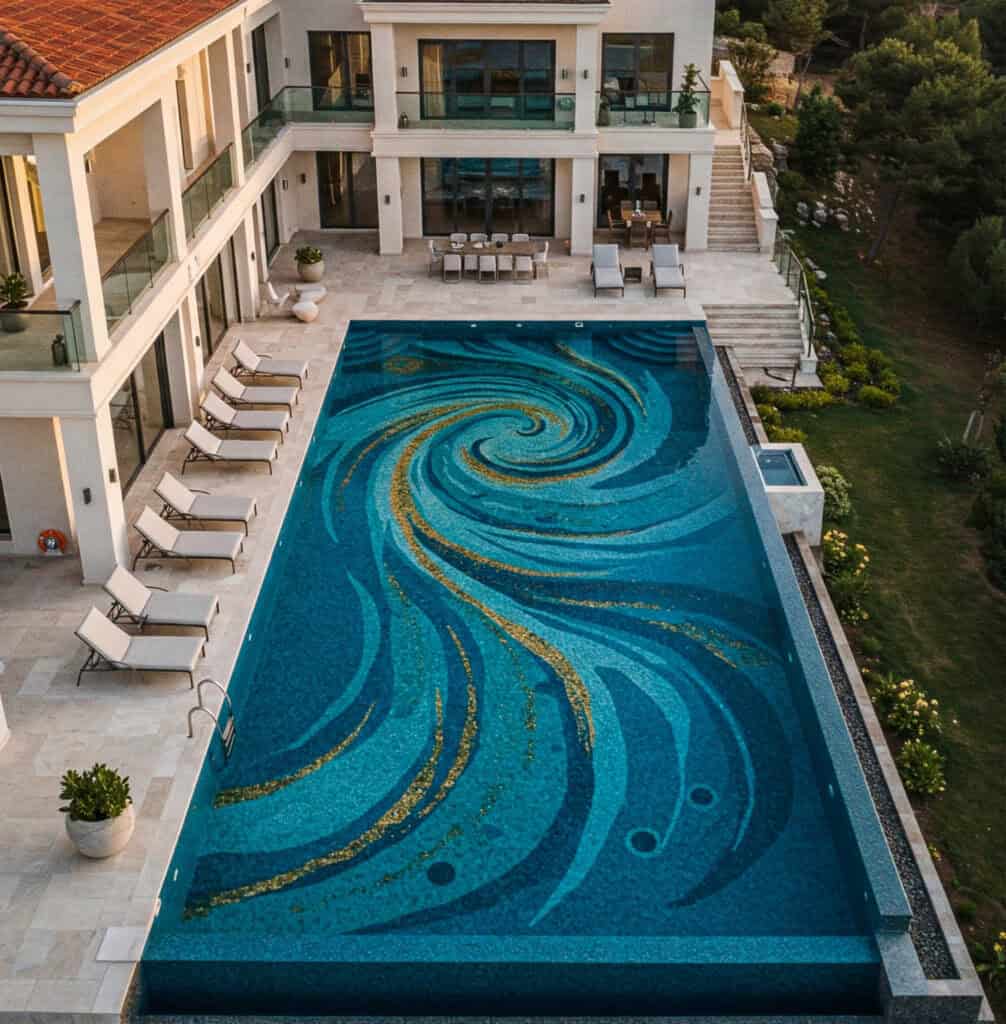
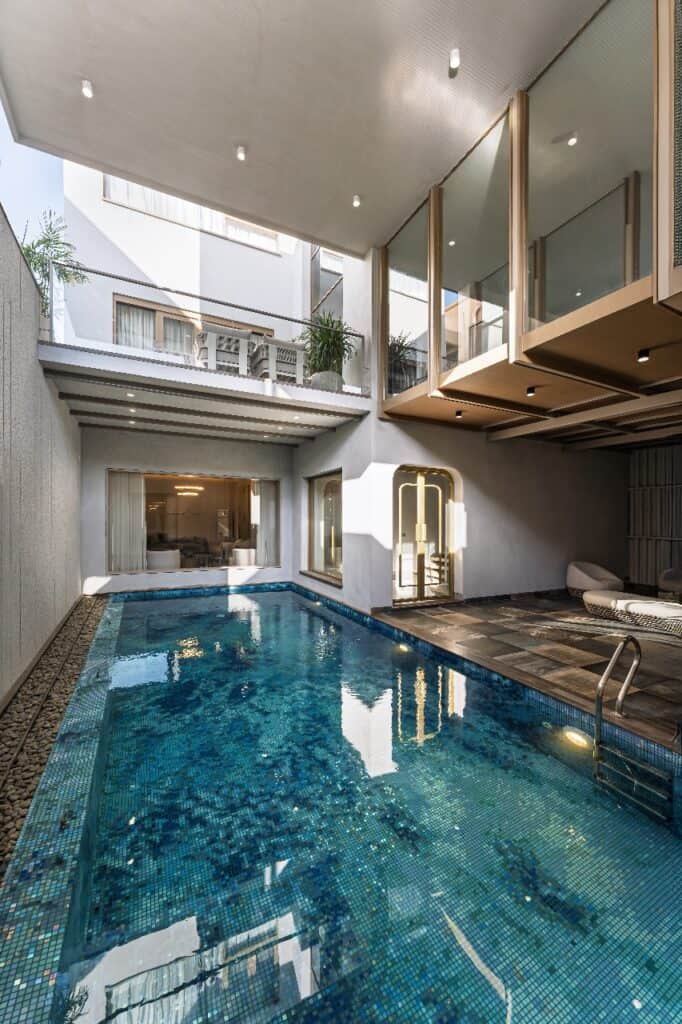
Pool mosaics are also being designed as focal artworks—imagine a sea turtle or coral reef sprawling across the pool floor, or a Greco-Roman border subtly framing the edges. These designs are not merely decorative; they’re expressions of personality, memory, and imagination. Whether for a boutique hotel or a private villa, these installations make a bold statement.
Think Extraordinary: MEC Artworks’ Unique Client Process
At MEC Artworks, we don’t just create mosaics—we translate vision into vibrant, tactile stories. Our process is structured but highly personalized. We begin with a deep consultation to understand your space, tastes, and goals. Whether you’re seeking the best mosaic art for a luxury spa or best pool mosaics for your private oasis, we custom-craft designs that align with your lifestyle.
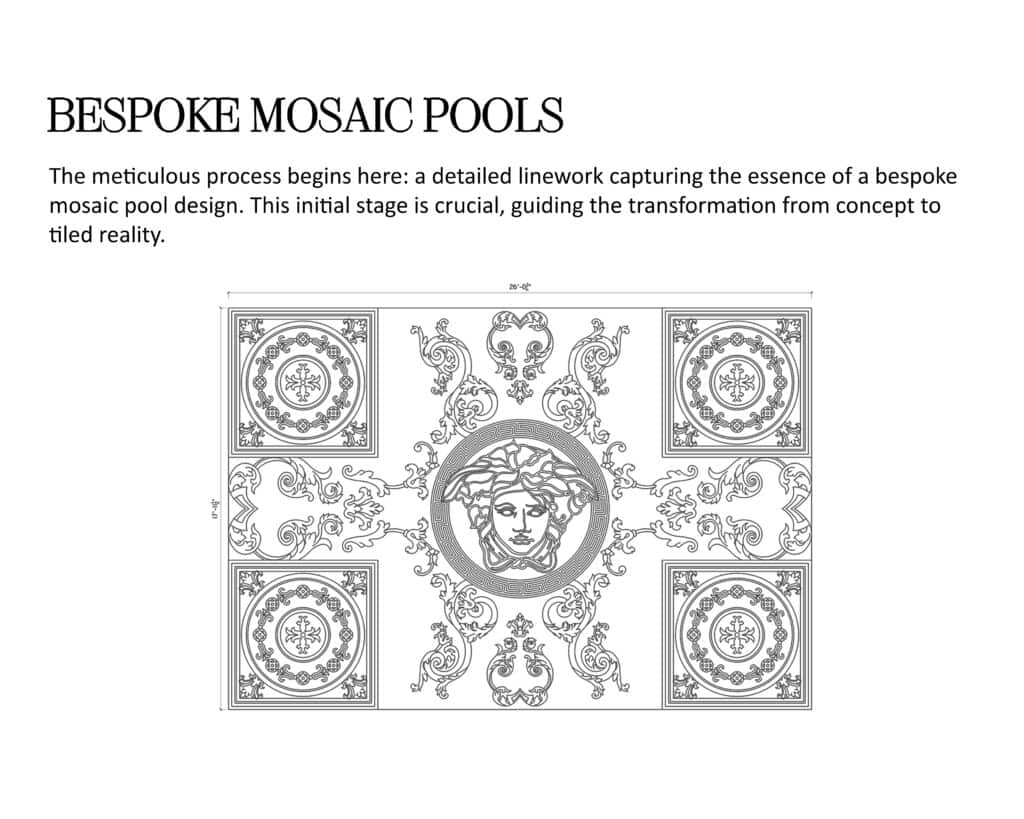
At MEC Artworks, we believe in transforming ordinary spaces into extraordinary works of art. Here’s how we approach each project:
- Initial Consultation: Understanding the client’s vision and requirements.
- Design Proposal: Presenting customized mosaic designs tailored to the client’s preferences.
- Approval and Refinement: Incorporating client feedback to finalize the design.
- Production: Crafting the mosaic with attention to detail and quality.
- Installation: Ensuring precise placement and finishing touches.
- Final Review: Conducting a walkthrough with the client to ensure satisfaction.
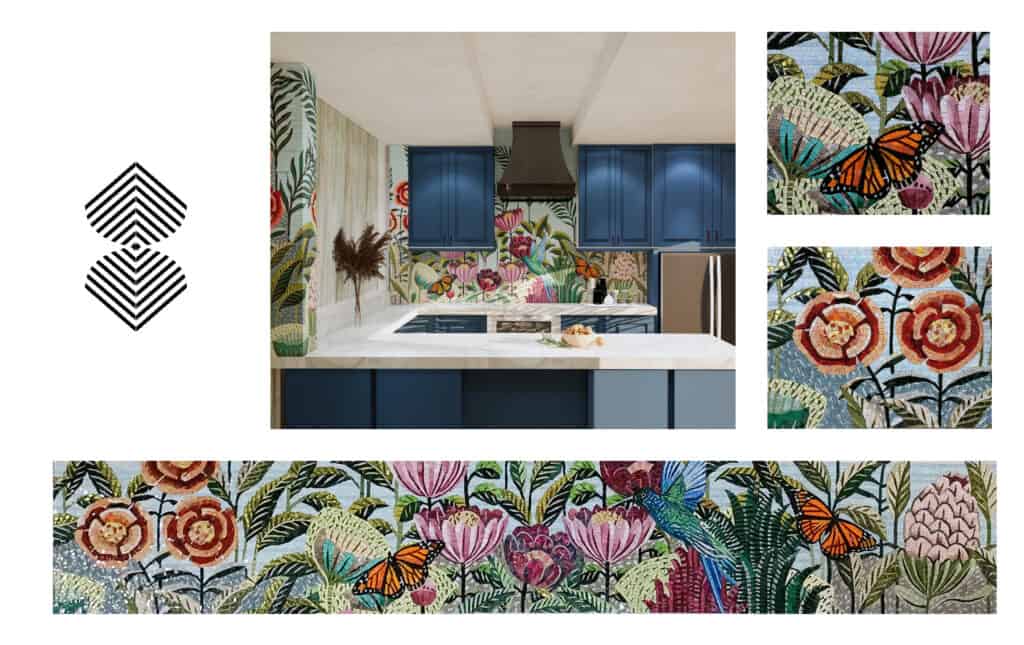
The Future of Mosaic Tile Art
The future of mosaic tile art lies in the fusion of tradition and innovation. Advancements in technology, such as digital design tools and 3D printing, are expanding creative possibilities. Artists are exploring new materials, including recycled and sustainable options, to create eco-friendly mosaics. The integration of smart technology may also lead to interactive mosaic installations, where tiles change color or pattern in response to environmental factors.
Let Mosaics Tell Your Story
From ancient ruins to modern sanctuaries, mosaic tile art has endured because it adapts, evolves, and speaks without words. It’s tactile storytelling that captures light, texture, and time. Whether you are seeking to create a luxurious pool, a meditative bathroom wall, or a conversation-starting mural, mosaic tile offers limitless possibilities.
At MEC Artworks, we specialize in crafting these one-of-a-kind stories. Our pieces combine artistry with architecture, memory with material, tradition with trend. If you’re ready to explore how mosaic can transform your space, connect with us today and discover the best pool mosaics and artistic tile installations tailored for you.
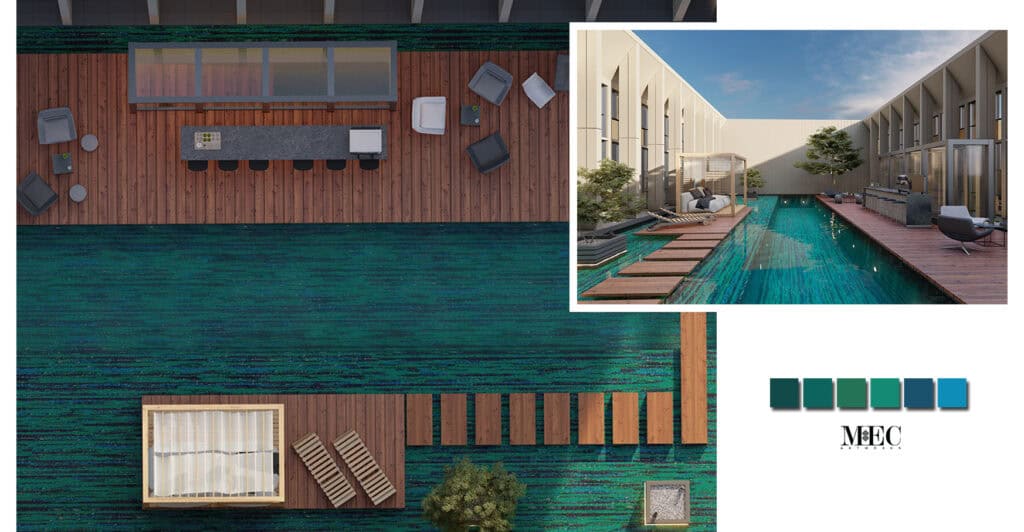
Let your walls tell a story — start your mosaic journey with MEC Artworks today!
FAQs
What are the best materials for mosaic tile art?
The most popular materials include glass, ceramic, stone, and smalti (a type of opaque glass). Each offers a unique texture, color, and finish—glass provides vibrant color, while stone gives a natural, earthy look.
Can I create mosaic tile art myself, or do I need a professional?
You can definitely create small mosaic projects yourself with basic tools and materials. However, for larger or more complex installations, a professional ensures precision, durability, and proper surface preparation.
Where can mosaic tile art be installed?
Mosaics are versatile and can be installed on walls, floors, countertops, pools, and even furniture. They’re suitable for both indoor and outdoor spaces, depending on the material used.
What is the most famous piece of mosaic art?
The Alexander Mosaic, from the House of the Faun in Pompeii, is one of the most famous. It depicts the Battle of Issus and is celebrated for its stunning detail and realism.


